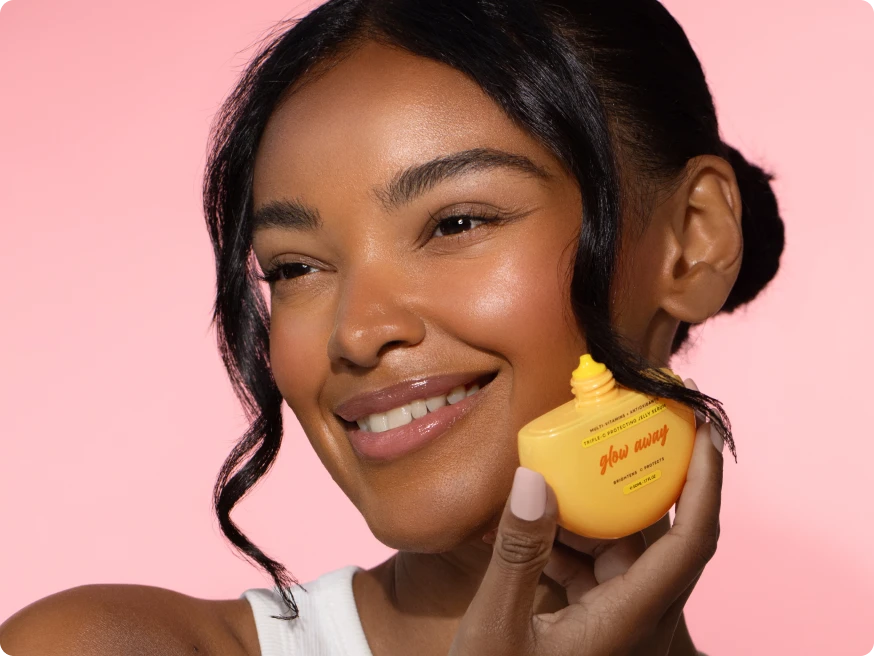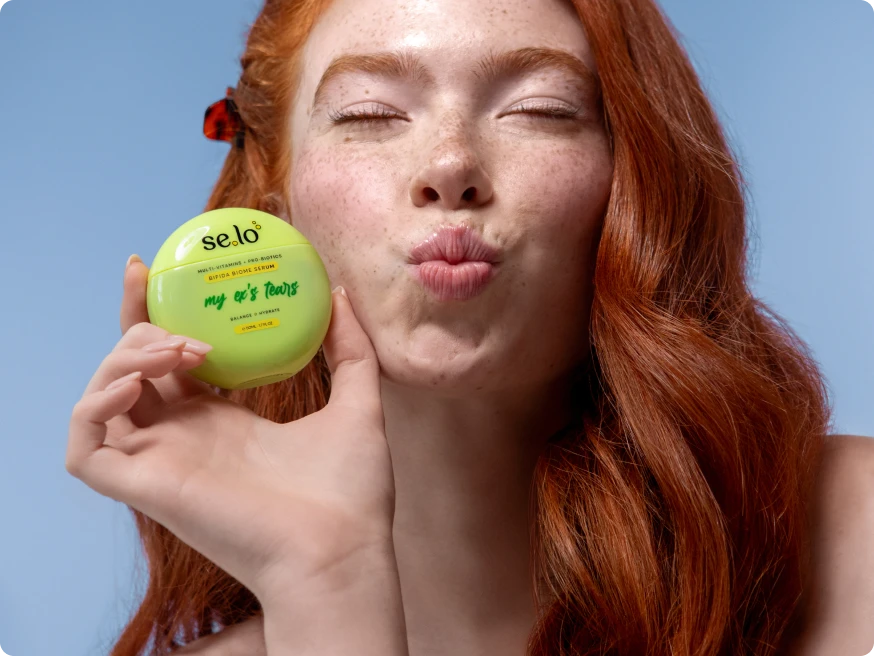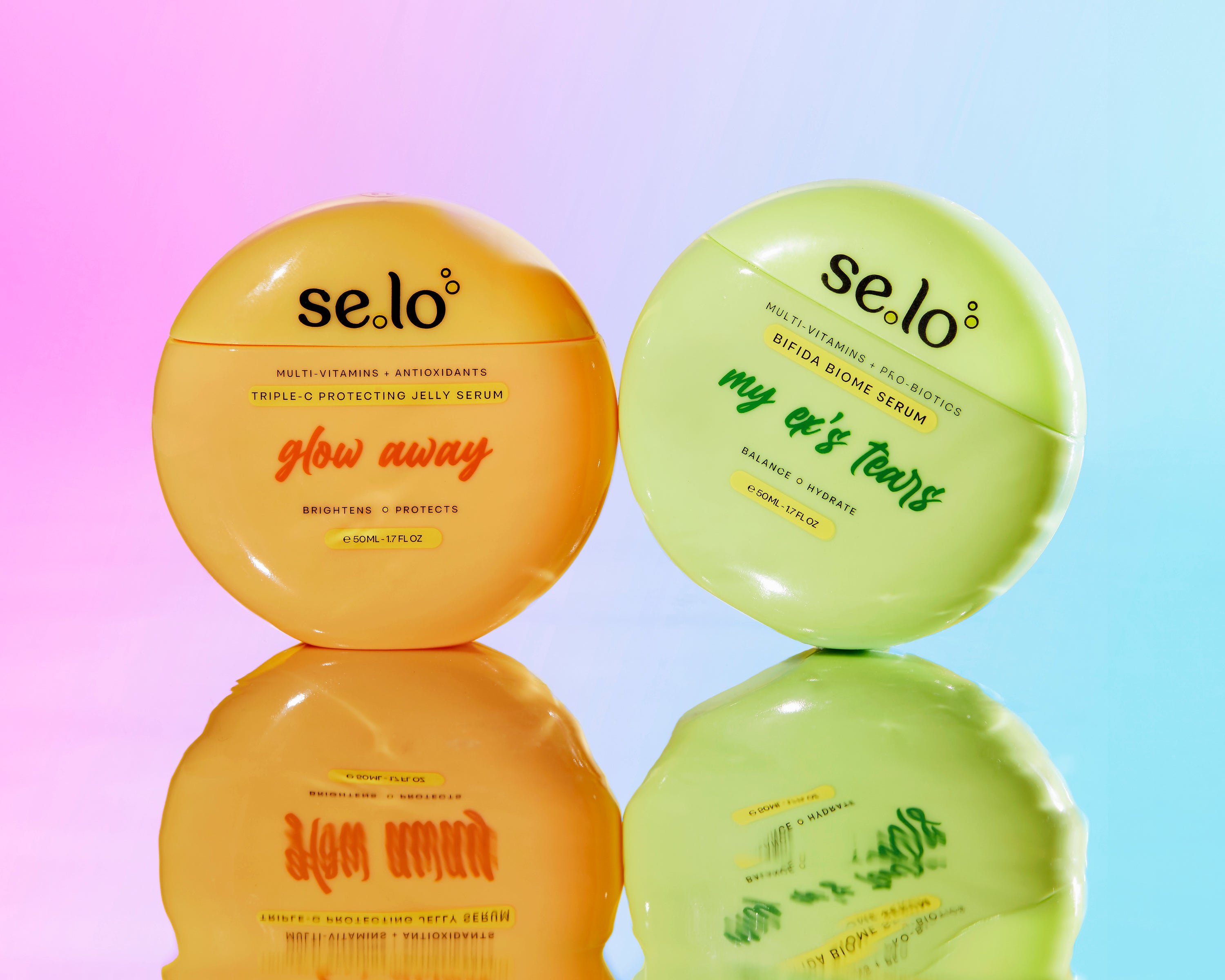The role of antioxidants in skincare

The Role of Antioxidants In Skincare
You’ve probably noticed that a lot of skincare products contain antioxidants but you may not know what they are, how they work, or whether they’ll actually make a difference to your skin. The good news is that they’re in your skincare products for a reason and they offer a wide range of benefits for your skin, no matter your skin type or concern.
What Are Antioxidants?
Antioxidants are molecules, like vitamins C and E, that co-exist in your skin to protect it from free radical damage. Your skin is constantly exposed to free radicals from external sources like the sun, pollution, smoking, and poor nutrition, or internally as a result of your body’s natural metabolic processes. Free radicals are highly-reactive and unstable molecules that have unpaired electrons. They react with the healthy molecules in your body by stealing electrons and starting a chain reaction that leads to cellular damage.
That’s where antioxidants come in.
Antioxidants have spare electrons that they are able to donate to free radicals without becoming unstable themselves. This ‘neutralizes’ the free radical and prevents it from stealing electrons and causing damage. Your skin naturally contains antioxidants like vitamins C, E, and beta-carotene to neutralize the free radicals produced by your body's metabolic processes. However, as you age, the level of antioxidants in your skin decreases.
Why Should You Use Antioxidants In Your Skincare Routine?
It’s important to include antioxidants in your skincare routine to maintain the balance of antioxidants vs free radicals in your skin. When your skin’s levels of antioxidants are reduced, either with age or from free radical exposure, your skin has less protection and you’re more likely to experience premature aging, hyperpigmentation, inflammation, and acne. Some antioxidants also offer additional benefits for your skin.
Protection From UV Radiation and Pollution
UV radiation from the sun is the leading cause of premature skin aging and the reason that sunscreen is essential in any anti-aging skincare routine. However, research suggests that sunscreen alone can only prevent around 55% of the free radical production caused by sun exposure. In contrast, sunscreens with added antioxidants can prevent up to 78%.
Anti-Aging
Free radicals break down collagen, elastin, and hyaluronic acid in your skin which results in fine lines, wrinkles, and sagging. By neutralizing free radicals, antioxidants can help prevent the signs of premature skin aging and keep you looking younger for longer. Some antioxidants, like vitamin C, also help boost collagen production which is essential for youthful-looking skin.
Skin Repairing
Free radicals cause skin inflammation which interferes with your skin’s renewal process and delays wound healing. Antioxidants help reduce inflammation and allow your skin to repair itself. A lot of antioxidants have antibacterial properties too which can prevent the colonization of bacteria in any open cuts or scrapes and allow for quicker healing.
Brightening
Sun damage and inflammation trigger your skin to produce more melanin (the substance that gives your skin its natural color) which causes dark marks and leaves you with an uneven skin tone. As antioxidants prevent sun damage and reduce inflammation, they can help stop abnormal pigmentation from developing. A number of antioxidants can also directly prevent melanin production by inhibiting tyrosinase, an enzyme essential for the melanin production process (e.g. vitamin C, resveratrol, vitamin A), or by preventing the spread of melanin from your melanin-producing cells to your surrounding skin cells (niacinamide).
Acne-Fighting
If you suffer from acne, research suggests you may also have lower levels of antioxidants, particularly vitamins A, C, and E, and including these antioxidants in your skincare routine may help reduce the severity of your acne. Acne is caused by a combination of excess oil, dead skin cell build-up, bacteria, and inflammation. As antioxidants are excellent at reducing inflammation, they can help improve the appearance of acne. Some antioxidants also have oil-reducing and antibacterial effects which enable them to treat acne from multiple different angles.
Soothing
If your skin is irritated and red, it’s usually a sign of inflammation and/or dehydration. Antioxidants can soothe your skin by reducing inflammation and increasing skin hydration.
The Best Antioxidants For Your Skin
If you’re looking to add antioxidants to your skincare routine, you might be wondering which one is the best. The truth is, there is no right answer, it completely depends on your skin type and the skin conditions you would like to treat.
Vitamin A (Retinol)
Retinol is often mistaken for an exfoliant when it's actually an antioxidant. It does increase cellular turnover but not by exfoliating your skin. Instead, retinol increases the rate at which your skin produces new skin cells and brings them to the surface of your skin to be shed.
It also:
- Brightens skin by preventing the production and abnormal distribution of melanin as well as helping clear up existing hyperpigmentation by increasing cellular turnover.
- Improves skin texture by reducing the appearance of enlarged pores and helping smoothen rough skin.
- Improves acne by preventing the growth of acne-causing bacteria, reducing inflammation, and preventing the buildup of dead skin cells. It also helps prevent acne scarring through its anti-inflammatory effects.
- Improves fine lines and wrinkles by boosting collagen production.
It’s a holy grail ingredient in any anti-aging, anti-acne, or anti-pigmentation skincare regime.
Vitamin B3 (Niacinamide)
Niacinamide is a water-soluble form of vitamin B3 that’s suitable for pretty much every skin type and offers benefits for most skin conditions. It:
- Hydrates skin by increasing the natural production of ceramides and fatty acids
- Brightens skin by preventing the distribution of melanin from your melanocytes (melanin-producing cells) to the surrounding skin cells.
- Improves acne by reducing oil production, preventing the growth of acne-causing bacteria, and reducing inflammation.
- Reduces facial redness through its anti-inflammatory and hydrating effects.
- Improves fine lines and wrinkles by boosting collagen production.
Niacinamide is a particularly good option if you have sensitive acne-prone skin and/or are often left with pigmentation changes after a breakout.
Vitamin C
Vitamin C is the most abundant antioxidant in your skin and it’s essential for the production of collagen which makes it a great antioxidant to include in an anti-aging routine. Although the most effective form of vitamin C is its active form of ascorbic acid, there are a number of vitamin C derivatives that can also offer similar benefits like:
- Brightening skin by preventing the activity of tyrosinase, an enzyme essential for melanin production.
- Reducing facial redness by treating inflammation and dilated capillaries.
- Improving fine lines and wrinkles by boosting collagen production.
- Replenishing vitamin E.
While vitamin C is probably considered the best antioxidant, it is particularly unstable and works best when paired with other antioxidants (particularly vitamin E and ferulic acid) that help stabilize it and improve its effects.
Vitamin E
Vitamin E is an oil-soluble antioxidant found naturally in your sebum (oil). If your skin produces too much oil, your skin’s vitamin E levels can become depleted and leave your skin vulnerable to free radical damage. Vitamin E helps to:
- Nourish your skin
- Improve the effectiveness of vitamin C
- Prevent premature skin aging by neutralizing free radicals and reducing inflammation.
Vitamin E is a particularly good option if you have dry skin. Although some research suggests that it may help improve acne, people often complain that it worsens their existing breakouts or causes new acne flares.
Ferulic Acid
Ferulic acid is an antioxidant found in plants that fight free radicals and boosts the effects of other antioxidants, particularly vitamin C and vitamin E. It doesn’t have quite as many benefits as other antioxidants but it’s excellent at preventing sun damage when combined with vitamins C and E.
Green Tea
Green tea contains a number of polyphenols, or plant antioxidants, and is excellent at reducing inflammation. It also:
- Reduces your risk of skin cancer by protecting your skin from sun damage
- Treats acne by reducing oil production, preventing the growth of acne-causing bacteria, and reducing inflammation.
- Reduces skin redness through its anti-inflammatory effects.
- Brightens skin by reducing melanin production.
There is a fair amount of research that supports green tea as a gentle yet effective acne treatment and it’s particularly suitable for oily skin types.
Resveratrol
Resveratrol is an antioxidant commonly found in red grapes, berries, and red wine that helps:
- Brighten skin by reducing melanin production in multiple ways. Some research suggests that it’s even better at reducing pigmentation than vitamin C!
- Reduce facial redness through its anti-inflammatory effects.
- Treat acne and is particularly effective against acne-causing bacteria (c.acnes).
While vitamin C and retinol are probably the antioxidants most people recommend for hyperpigmentation, resveratrol is a very effective alternative that is often overlooked.
Coenzyme Q10
Coenzyme Q10 is an antioxidant that your body produces naturally and uses to help create energy in your cells. Unfortunately, as you age, your body produces less Coenzyme Q10 but applying it to your skin can help correct this. It can also:
- Increase energy production in your skin cells
- Protect your skin from free radical damage and oxidative stress
- May help reduce your risk of skin cancer
When it comes to anti-aging, coenzyme Q10 is a great option to include in your regimen.
How To Use Antioxidants In Your Skincare Routine
Now that we have established just how beneficial antioxidants can be for your skin, you might be wondering how you’re actually supposed to use them.
Due to their ability to protect your skin from sun damage and boost the effectiveness of sunscreen, most antioxidants are best used in your AM routine. A lot of sunscreens include various antioxidants in their formulas but it’s usually best to use an antioxidant serum or moisturizer underneath your sunscreen. There is one notable exception to the AM recommendation - retinol.
Retinol is deactivated by sunlight and, although it’s fine to use under sunscreen, it's usually best to use it in your PM routine. An additional benefit to using retinol at night is that your skin's natural cellular turnover and renewal are higher overnight and, as retinol increases cellular renewal, it can enhance your skin's natural process. Antioxidants also work best when paired with other antioxidants. The best example of this is vitamin C, vitamin E, and ferulic acid. Research suggests that vitamin C is four times as effective when it's combined with vitamin E and eight times as effective when combined with both vitamin E and ferulic acid. Green tea also works better when combined with caffeine, another antioxidant.
If you’re looking to use more than one antioxidant, it’s usually better to use them in a multi-ingredient product rather than layering individual antioxidants yourself. You can also use them in your AM and PM routine as a lot of antioxidants can be used twice a day - the exceptions being vitamin C and retinol as both can cause skin irritation if used too frequently.
For example, if you were looking to add vitamin C, niacinamide, and retinol into your skincare routine you could use a vitamin C serum in the AM under your sunscreen then a retinol serum followed by a niacinamide moisturizer in the PM.
Coclusion
Antioxidants are essential to your overall skin health. Your body naturally produces some antioxidants but they decrease with age and are often depleted by UV radiation and pollution. They prevent cellular damage by reacting with free radicals and preventing oxidative stress. This reduces your risk of skin cancer and premature skin aging.There are a wide variety of antioxidants available in multiple forms (i.e. cleansers, toners, serums, moisturizers, sunscreens, masks, etc.) and some may be particularly suited to your skin type or condition. The good news is that you don't need to choose between antioxidants because they’re more effective when you combine two or more together.
Final Note
It’s important to maintain realistic expectations when adding any new skincare ingredient into your routine and antioxidants are no exception. Results take time. As anti-aging ingredients, antioxidants' real strength is in preventing aging, not just treating it - so even though your results may be slow, just remember that your antioxidant serum is preventing your skin from aging as well as correcting any signs of premature aging.
0 comments





